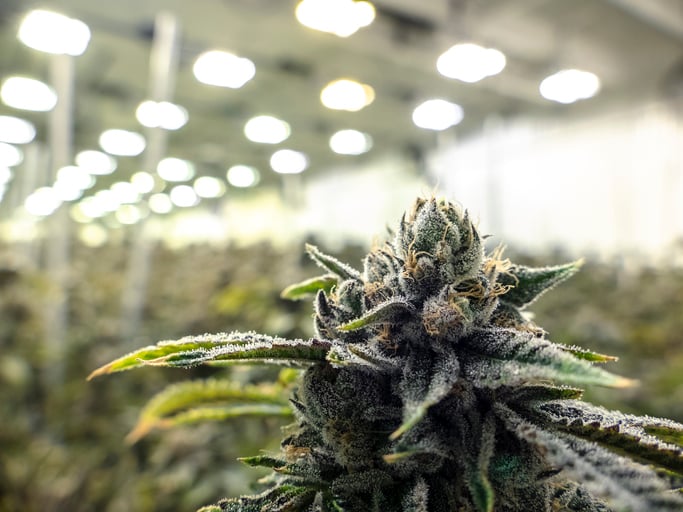Today's the day. Exactly 12 months after Canada's historic legalization of adult-use recreational marijuana went into effect, the country's next phase of the recreational market is now in place.
Canadian regulators took longer to develop regulations for cannabis derivative products, including cannabis-infused beverages, edibles, and concentrates used in vaping, than it did for the cannabis leaf and oils products legalized a year ago. But those added regulations have now gone into effect, opening a new market that many are calling "Cannabis 2.0."
Here are three things you should expect with Canada's new Cannabis 2.0 recreational marijuana market.

Image source: Getty Images.
1. Nothing yet
After all the anticipation and hoopla, the launch of the Cannabis 2.0 market won't be nearly as exciting as the opening a year ago of the initial recreational marijuana market in Canada. Why? No cannabis derivative products will hit the market yet.
Although the new regulations for cannabis derivative products are now in effect, licensed cannabis producers must provide a 60-day notice to Health Canada before actually marketing any new cannabis products. This means that cannabis derivative products won't be available to consumers until mid-December.
Even after the new products are available for sale, it could be a while before we know how well the new market launch is going. For one thing, mid-December comes right before the holiday season. It's uncertain how that will impact initial sales. Also, the first quarterly reports from companies that will include Cannabis 2.0 sales won't come until February 2020.
2. Tremendous anxiety over beverages and vapes
You can bet that analysts and investors will be on pins and needles while waiting for the first sales results to become available. And there will almost certainly be tremendous anxiety particularly focused on cannabis-infused beverages and vaping products.
Some industry observers have expressed skepticism over the prospects for cannabis-infused beverages. Aurora Cannabis (ACB 3.45%) even opted not to move forward initially with these products. Chief Corporate Officer Cam Battley said in the company's fiscal 2019 Q3 conference call in May that Aurora is developing cannabis-infused beverages but "considering the anticipated relatively low market share of these products, we're not rushing this."
On the other hand, Canopy Growth (CGC +0.00%) has invested heavily in cannabis-infused beverages. The company believes that it will be able to carve out a new market with great-tasting, low-calorie, cannabis-infused beverages. Canopy has been working closely with its big partner, alcoholic beverage maker Constellation Brands, to develop a lineup of cannabis beverages that should hit the shelves later this year.
Until recently, vaping products seemed like a no-brainer to succeed. Both Aurora and Canopy will launch vaping products in the Cannabis 2.0 market. However, health scares in the U.S. and Canada linked to vaping could prove to be problematic for sales, especially if key provinces take action to restrict usage of the products.
3. Edibles potentially a big winner
With uncertainty about cannabis-infused beverages and vapes, that leaves cannabis edibles as a more bankable winner in the Cannabis 2.0 market. Most of the top Canadian cannabis producers plan to introduce a variety of cannabis edibles.
What kinds of cannabis edibles are on the way? Aurora has specifically mentioned chocolates, gummies, and mints. Earlier this year, former Canopy Growth CEO Bruce Linton stated that, with respect to cannabis edibles, "if it's legal, we'll have it." He added that Canopy intends to roll out "every format [of edibles] you can contemplate." Health Canada's regulations hadn't been finalized when he made those statements, however.
Most other Canadian cannabis producers are also planning to jump into the edibles market in a big way. Organigram, for example, has ramped up its capabilities to make cannabis-infused chocolates and expects to do well in this segment of the Cannabis 2.0 market.
Overhyped?
The near-term potential for marijuana stocks and the cannabis industry, in general, has been overhyped over the last couple of years. Is this trend continuing with the Cannabis 2.0 market?
Professional services firm Deloitte estimates that the annual Cannabis 2.0 market could reach 2.7 billion Canadian dollars. However, it's important to note something that Deloitte stated in its analysis: "Cannabis 2.0 will undoubtedly be a 'slow burn' at first, but as more products become available we're confident it will catch fire and gain momentum... There will be missteps, delays, and frustration."
Deloitte's take appears to be on point. If you expect a huge new market to spring into existence, you'll almost certainly be disappointed. But if you have a long-term perspective, Cannabis 2.0 could present a great opportunity to buy stocks of cannabis companies with a solid business model and a strong management team.







